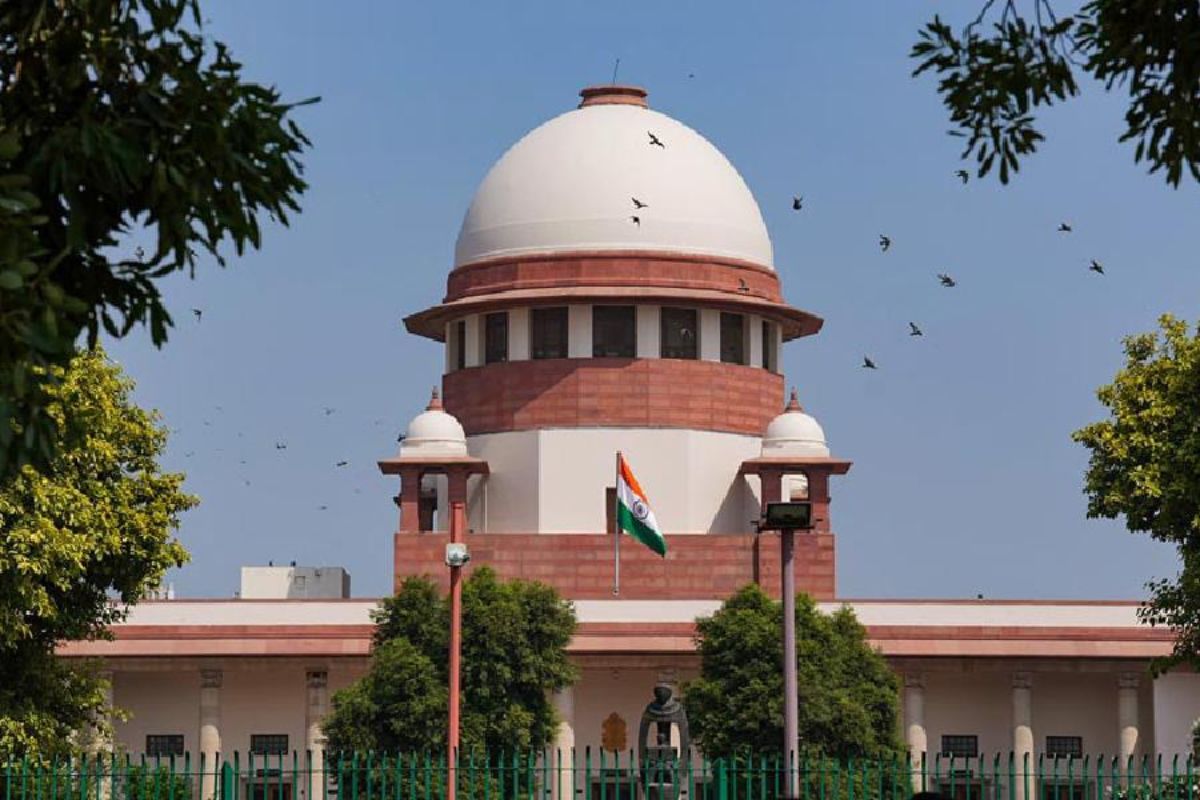Toxic air: SC refuses to relax GRAP-IV measures,
The apex court asked the CAQM to take a call on lifting online schooling.
“Why should people who violate the law get economic benefits,” asked the apex court.

SC quashes proceedings against Karnataka Dy CM Shivakumar in PMLA case
The Supreme court on Tuesday suggested that farmers burning stubble be disincentive by denying them the benefits of minimum support price (MSP) – an economic consequence of their violating the law.
Suggesting disincentivizing the farmers engaged in stubble burning that contributes to toxic air pollution in the national capital, Justice Sanjay Kishan Kaul heading a bench also comprising Justice Sudhanshu Dhulia, said “Why should people who violate the law get economic benefits?”
Suggesting a deterrent to prevent future occurrences of farm fires, the bench observed that the paddy crop should not be made available to farmers who indulge in burning their fields.
Advertisement
Thinking aloud, Justice Kaul said, “I am thinking out loud. Why should any purchase be made under the MSP system from people violating the orders and lighting fires, regardless of how this affects the people, the children? The stick must also follow the carrot. Why should people who, despite all observations of the court, despite counselling, continue violating the law be allowed to benefit monetarily? People who have been identified as having lit fires should not be allowed to sell their products under this system.”
However, Justice Dhulia voicing a considerate view, said that the farmers from Punjab are often vilified without being given a platform to voice their concerns, and suggested they be helped with resources to understand the problem.
“The farmer is being made a villain. He is not being heard. He must have some reasons for burning the stubble,” Justice Dhulia said.
The bench asked why doesn’t the Punjab government make the processing of crop residue 100 percent free?
The bench further said, “To burn it, all the farmer needs to do is light a matchstick. Machine for the management of crop residue to farmers is not everything. Even if the machine is given for free, there is diesel cost, manpower etc..” and asked why Punjab cannot fund diesel, manpower, etc. and utilise the byproduct. It said that Punjab should take a cue from Haryana in the manner in which financial incentives are given.
“For poor farmers, the State should fund 100 per cent of machinery… this is the duty of the state”, the bench said.
Noting that the land in Punjab is slowly becoming arid because the water table is getting depleted and asking the Attorney General R. Venkataramani to explore how the government can discourage paddy and encourage alternate crops, the bench said, “If land runs dry, everything else will get affected. Somewhere the farmers should understand or be made to understand the consequences of growing paddy.”
Having flagged the issues, the bench observed that both the Union government and the State governments must forget the politics and figure out how to do this. “If blame game continues, land will run dry, water will disappear,” it added.
At the outset of the hearing, the Punjab government told the top court that 8481 meetings have been held with farmers and farm leaders to convince them to not burn paddy straws by SHOs.
Noting in its order that the upward trend in farm fires has not abated, the bench in its order recorded that 984 FIRs have been lodged against landowners for stubble burning in Punjab. Environmental compensation charges amounting to more than Rs. 2 crores have been imposed of which Rs 18 lakhs has been recovered.
Posting the matter for further hearing on December 5, the court asked the Punjab government how much amount it has received from the fines imposed.
The top court also directed the Delhi and Uttar Pradesh government to file reports on incidents of waste burning in the open.
Senior advocate and former Delhi High Court judge Vipin Sanghi flagged the issue of non-implementation of colour-coded stickers by the vehicles. He submitted that for new cars, this scheme is being implemented, but not for old cars.
“We call upon the Cabinet Secretary’s Committee to look into this aspect and figure out what directions are to be issued to States for better compliance,” the bench ordered. It also asked the Cabinet Secretary’s Committee to look into aspects of construction at private sites.
Advertisement